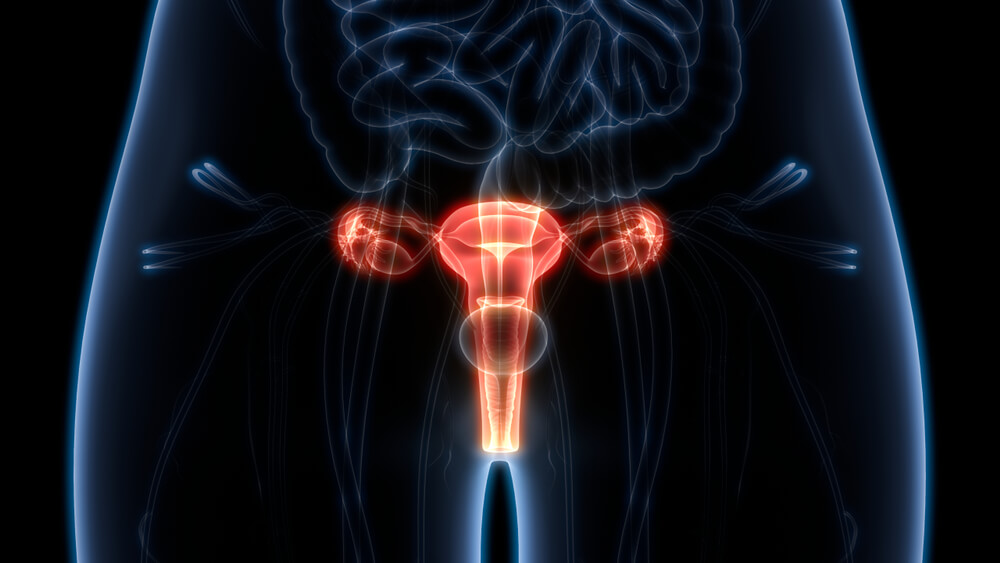Fallopian tubes connect the ovaries to the uterus, enabling an egg to easily travel to the uterus. Many women have two ovaries (right and left) that store the egg follicles. Every month, one follicle ripens and then releases an egg into the Fallopian tubes. When there’s a blockage in these tubes, this condition is referred to as tubal factor infertility or blocked Fallopian tubes. The obstructions might occur in one or both tubes. Blocked Fallopian tubes can be a cause of infertility in women.
Symptoms of Blocked Fallopian Tubes
Unlike many other gynecological problems, women will hardly show any signs of blocked Fallopian tubes. Many women do not know their Fallopian tubes are blocked until they experience problems when trying to get pregnant. In some instances, blocked tubes can cause mild and regular pains on one of the sides of the abdomen. That usually occurs in a type of obstruction known as hydrosalpinx.
Hydrosalpinx occurs when fluid accumulates and enlarges the blocked Fallopian tube. However, situations that might cause blocked tubes can have unique symptoms. Endometriosis, for instance, can lead to pelvic pain and heavy and painful periods. It can also increase the chances of having a blocked Fallopian tube.
Causes of Blocked Tubes
Many issues can lead to blocked tubes. Pelvic inflammatory disease (PID) is one of the main causes of blocked Fallopian tubes. Generally, PID is caused by an STD (sexually transmitted disease), and the inflammation occurs inside the Fallopian tubes. A history of pelvic infection or PID can also increase the chances of getting blocked tubes, even if a woman no longer has a pelvic inflammatory disease. However, all pelvic infections are not related to STDs. The inflammations may also occur outside the tubes because of infections from other organs like the appendix. Below are other reasons why tubes might be blocked.
- Endometriosis – Women’s tubes might get blocked or damaged in serious instances of endometriosis because of scar tissue or adhesions.
- Accidental damages after other surgical procedures – These tubes can get damaged or blocked by too much scar tissue from a previous surgical procedure.
- Congenital tubal obstruction – This condition is a bit rare and occurs when the Fallopian tubes are blocked from birth.
- Fibroids – Fibroids can block the tubes, especially where they connect to the uterus, leading to infertility.
- History of STD infections, especially gonorrhea or chlamydia
- A ruptured appendix history
- History of uterus infections caused by miscarriage or abortion
- Past ectopic pregnancy

How Blocked Fallopian Tubes Affect Fertility
In many instances, blocked tubes can be a cause of infertility in many women. An egg and sperm usually meet in the Fallopian tubes for fertilization. However, blocked tubes might prevent the two from getting fertilized. Conceiving without treatment is not possible, especially if both Fallopian tubes are entirely blocked. If the tubes are partially blocked, then a woman can get pregnant. Nonetheless, the risk of getting an ectopic pregnancy will be high. That’s because it will be more difficult for the fertilized egg to travel to the uterus through a blockage. In such cases, a doctor may recommend IVF (in vitro fertilization) based on whether the condition is treatable.
If there is a blockage in one of the Fallopian tubes, the obstruction will most likely not affect fertility because the eggs can still move to the uterus through the unblocked tube. In such a case, a doctor will recommend fertility medication to increase the chances of ovulating on the unaffected side.
Diagnosing Blocked Fallopian Tubes
Blocked Fallopian tubes are pretty hard to identify and are usually accompanied by only one symptom: failure to conceive. One way doctors use to examine the interior of the tubes to diagnose obstructions is Hysterosalpingography (HSG). It is a form of an X-ray where the doctor introduces a type of dye into the Fallopian tubes and uterus. The dye assists the doctor in seeing more of the Fallopian tubes’ interior on the X-ray.
An HSG test takes place within the first half of a woman’s menstrual cycle, has rare side effects, but can have false-positive results. The blockages appear where the uterus and Fallopian tube meet. If a woman gets a false positive, the fertility specialist might repeat the test or ask for a different medical test to confirm. If the HSG does not help doctors make a conclusive diagnosis, they can also order other tests for further assessment.
The tests that might be ordered include laparoscopy, ultrasound, or hysteroscopy. The doctor might also order blood tests to check for the existence of chlamydia antibodies, implying a current or previous infection. If doctors find an obstruction during a laparoscopy test, they can remove the blockage.
Blocked Fallopian Tubes Treatment
If fertility experts diagnose one or two blocked tubes, they can use a variety of ways to treat and unblock them. If there is one blocked tube, a doctor might recommend the patient continues attempting to conceive because they can still get pregnant naturally. If both Fallopian tubes have obstructions, then microsurgery or laparoscopic surgery might be a great option to open the two tubes or one of them. If there are few adhesions between the ovaries and Fallopian tubes, the chances of conceiving naturally after the surgical procedure are high.
If the tubes are obstructed by huge amounts of adhesions or scar tissue, treatments to remove the obstructions might not be successful. A surgical procedure to repair Fallopian tubes damaged by infection or ectopic pregnancy might be a good option. If an obstruction is caused by a damaged part of the tube, fertility treatment in Bradenton can safely remove the damaged area and attach the healthy parts. However, if surgical procedures are not effective, then IVF can be a good option. Generally, IVF eliminates fertilization in the tubes by putting a healthy embryo into the uterus right away.
For women who are worried about their infertility issues and suspect they might have blocked tubes, consider talking to a fertility expert. Consulting a fertility specialist can help answer any questions, put minds at ease, and even help get women on the best path to pregnancy. When only one of a woman’s Fallopian tubes is blocked, conceiving naturally on their own or with the help of low-tech treatments might be possible. Nevertheless, when both Fallopian tubes are blocked or damaged, surgery or other treatments might be necessary.
Fallopian tube blockages are among the leading causes of infertility in women, but they can still have children. In many instances, a laparoscopic surgical procedure can remove the obstruction and boost fertility. If surgery is not possible, one of our fertility specialists can use IVF to help patients conceive. Contact us at Women’s Care of Bradenton to learn more.


